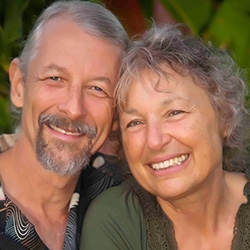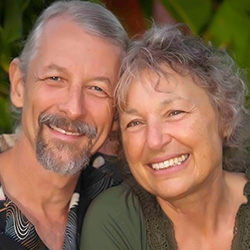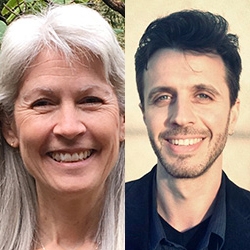

NVC Resources on Interdependence
-
Jim leads a self-connection exercise focused on how our lives are interwoven with people we love, acquaintances, people unknown to us, and even those who have come before us or will come after us.
-
Jim and Jori discuss sharing power through exploring our experience of having and not having power, how we make choices about our power and examining our relationship to power itself.
-
LoraKim Joyner addresses the sense of overwhelm that can accompany holding the needs of the many. Practicing self-empathy is a pathway to living in the tension of mutually holding my needs and the needs of others.
-
LoraKim explores what gets in the way of seeing the inherent worth and dignity of others when there is conflict in congregations. The strategies LoraKim offers can be applied to any spiritual community.
-
Developing interpersonal relationship skills in congregations is integral to working with the conflicts that arise. These skills can be applied to any spiritual community.
-
Miki responds to a participant’s question concerning fear of consequences when speaking with a manager at work. In this excerpt, she delves into the topic of choosing to inhabit nonviolence in the workplace, affirming that fear and nonviolence are incompatible, and that nonviolence is a powerful alternative to our habitual Fight, Flight, Freeze responses.
-
When someone expresses upset about our actions, and we focus on our intention being seen and understood (e.g. "I didn’t mean to hurt you”) it doesn't support the speaker in being heard more deeply with care. Here we'll explore this dynamic in a way that supports more clarity and the possibility of greater personal liberation. Read on for more.
-
Who are you not use to caring about? Is it those you classify as "other"? Those you disagree with? The lower class? People in power? Those who inflict harm? Yourself? To include everyone's needs fully, not instead of your needs, can transform the either/or paradigm. It can also help us to go beyond so-called "codependency". And it can support us all to live more sustainably on this planet.
-
By focusing on NVC process and practice without factoring in the interdependent, systemic dimension we unwittingly diminish the power of NVC. We reinforce the dominant paradigm, rather than challenging it -- making NVC one more tool for compliance. NVC principles can turn against its own purpose in cruel ways. NVC could also empower social change. We'll need our attention on this matter if we are to contribute to transforming the oppression we face and our collective march towards extinction.
-
In this book excerpt, Kathleen and Jared offer a path to reach deeper clarity, distinguishing between universal needs and strategies.

Quick Links
Subscription Preferences
Stay In Touch!
Looking for ways to keep up with NVC Academy news, get special offers, free resources, or words of inspiration? Here are five ways to stay engaged:









